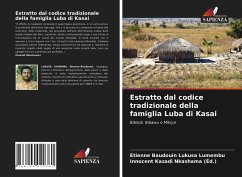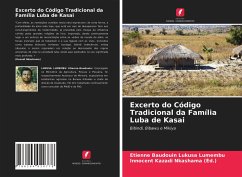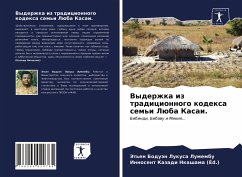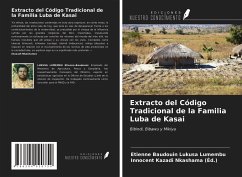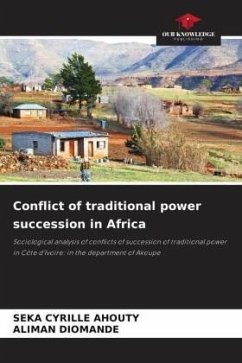
Excerpt from the Traditional Code of the Luba Family of Kasai
Bibindi, Bibawu and Mikiya
Versandkostenfrei!
Versandfertig in 6-10 Tagen
27,99 €
inkl. MwSt.

PAYBACK Punkte
14 °P sammeln!
"Indeed, the revelations contained in this work express, in a way, the depth of the luba soul today, which is in the process of disappearing in the face of the constraints of modernity, already preceded by the shock of the influence suffered by the great religions of the book, imported, continually prompting an effort to reconcile the visions of the world beyond, the invisible forces at work there and their link with the living. Concepts such as lubanza (court), tshibawu (punishment), bibindi (indecency), mikiya (disputes to be repaired) in relation to the non-respect of ancestral rules of lif...
"Indeed, the revelations contained in this work express, in a way, the depth of the luba soul today, which is in the process of disappearing in the face of the constraints of modernity, already preceded by the shock of the influence suffered by the great religions of the book, imported, continually prompting an effort to reconcile the visions of the world beyond, the invisible forces at work there and their link with the living. Concepts such as lubanza (court), tshibawu (punishment), bibindi (indecency), mikiya (disputes to be repaired) in relation to the non-respect of ancestral rules of life in luba society, are here explained in their deepest meaning. »(Kazadi Nkashama)



